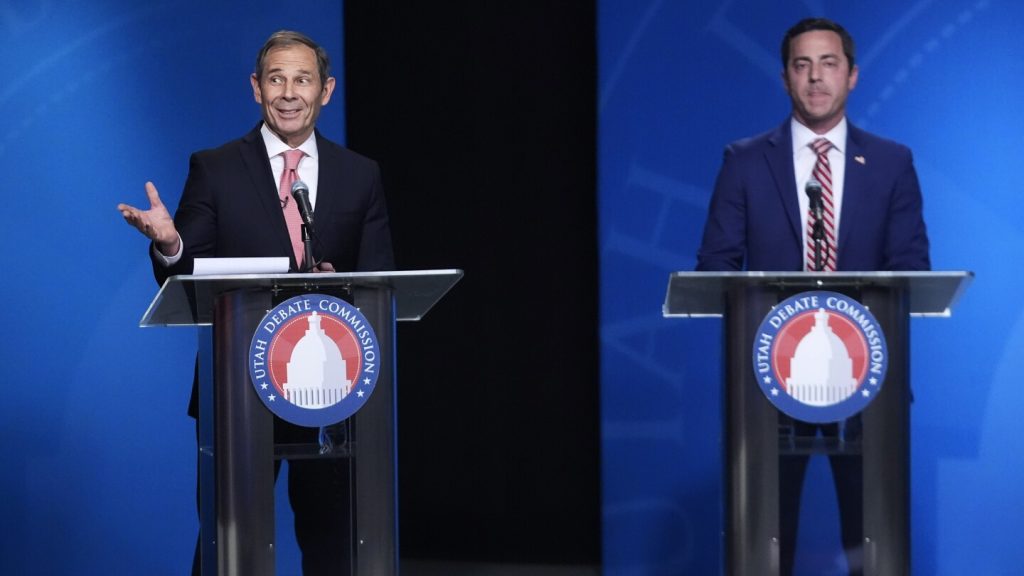Anti-Trump Republicans in Utah are facing a pivotal moment as they gear up for the Tuesday primaries. With Senator Mitt Romney announcing that he will not seek reelection, the field is open for new contenders to emerge. Former state House Speaker Brad Wilson and Riverton Mayor Trent Staggs have already joined the race, both emphasizing their support for former President Donald Trump. U.S. Rep. John Curtis is also in the running and is considered the front-runner, despite facing criticism for his lukewarm embrace of Trump.
In Utah, winning a nominating convention does not guarantee success in the primary. Although candidates like Staggs have the backing of Trump and the state Republican Party, the voters in Utah tend to lean towards more moderate candidates. Gov. Spencer Cox, who faced backlash at the nominating convention, is still favored to win the primary on Tuesday. The state party’s endorsement of more conservative candidates, like Phil Lyman, does not always align with the preferences of the electorate.
Rep. Celeste Maloy’s victory in the 2021 special election, despite losing the nominating convention, suggests that unexpected outcomes are possible in Utah politics. Maloy, who has the endorsement of Trump, is now facing a tough primary challenge from Colby Jenkins, who has the backing of Sen. Mike Lee. In the 3rd Congressional District, candidates like Kennedy and Bird are vying for the seat, with Kennedy winning the party’s endorsement but facing competition from other contenders.
As the primary approaches on Tuesday, Utah voters will have the opportunity to select candidates for various positions, including governor, U.S. Senate, U.S. House, state attorney general, and others. The Democratic primary is open to all voters, while the Republican primary is limited to registered Republican voters. With a mail-in voting system in place, voter turnout is expected to reflect the political landscape of the state, where Republicans make up the majority of registered voters.
The Associated Press will provide coverage of the primary elections, with a focus on key races and potential outcomes. While there is no automatic recount provision in Utah, the state will fund a recount if the margin between the top two candidates is 0.25 percentage points or less. Turnout and advance voting numbers will play a crucial role in determining the final outcome, with previous elections providing valuable insights into the process of counting and reporting election results.
As Utah prepares for the primary on Tuesday, all eyes are on the candidates and their campaigns as they make their final push to secure victory. With a diverse field of contenders and a range of political affiliations, the outcome of the primaries will shape the future of Utah politics and set the stage for the November general election. Follow the AP’s coverage of the 2024 election for the latest updates and analysis on the evolving political landscape in Utah and beyond.


